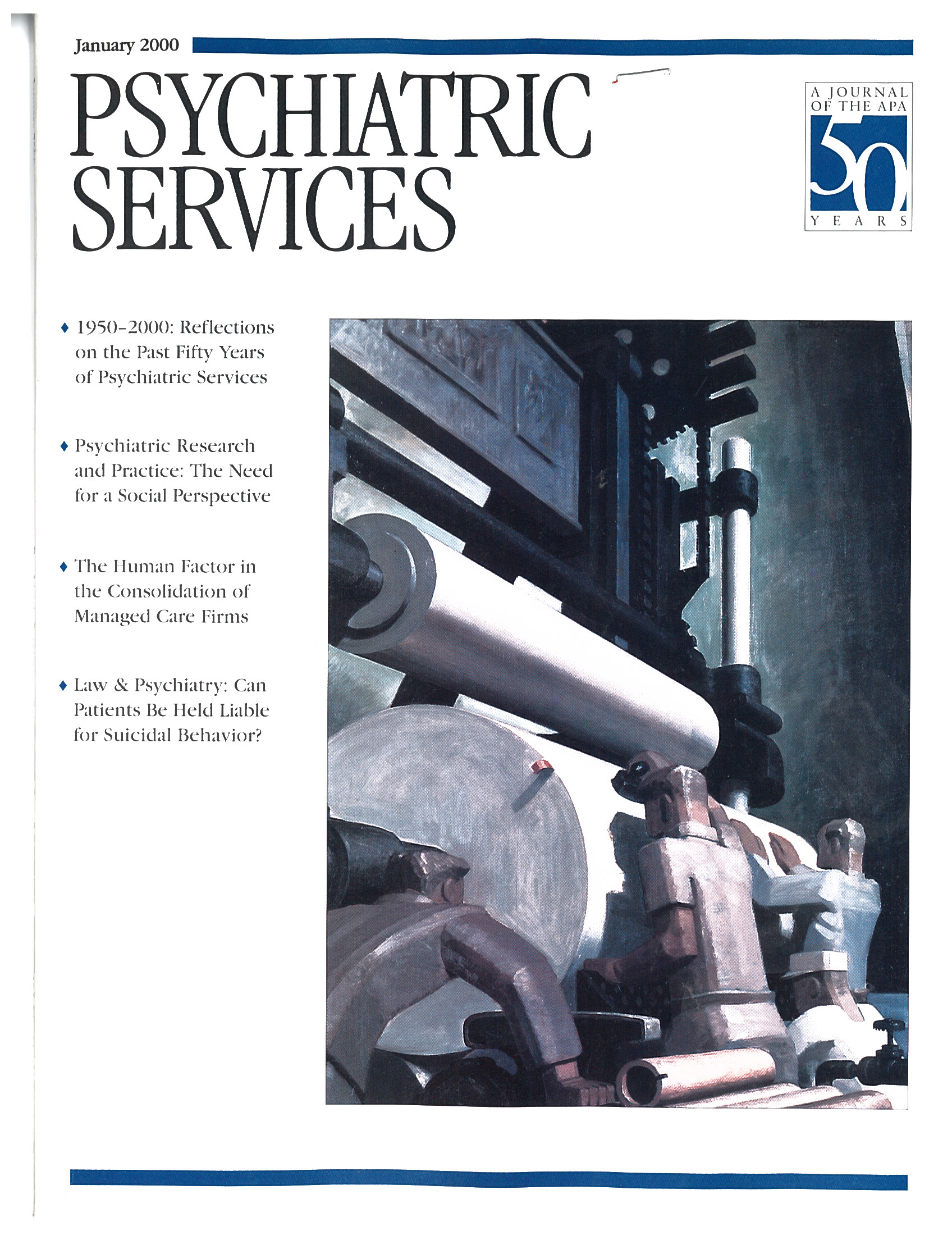•Our 50th Anniversary
This year marks the 50th anniversary of Psychiatric Services, which first appeared in January 1950 as the four-page A.P.A. Mental Hospital Service Bulletin (reprinted in this issue beginning on page 68). We launch our year-long anniversary celebration with a review of the important developments in the last half-century of psychiatric services as reflected in the pages of the journal. The review was compiled by Jeffrey L. Geller, M.D., M.P.H., a member of the journal's editorial board and also its book review editor. Dr. Geller organizes his review largely around the location of care and treatment because he sees location—institution versus community—as the battleground for the ideology of care and for the crystallization of policy and legal reform (see page 41)…. In the Taking Issue column, Psychiatric Services editor John A. Talbott, M.D., describes the factors that contributed to the revitalization of psychiatry and mental health care after World War II and that provided the impetus for launching this journal (see page 7).
•Overcoming Social Amnesia
Psychiatry's current emphasis on drug treatment and biomedical research is trivializing the social components of research and practice, Carl I. Cohen, M.D., argues in a thoughtful paper that challenges the priority of biology over social factors in explaining mental disorders. Dr. Cohen cites studies showing that social and environmental forces can directly influence the workings of the brain and that social forces can alter psychiatric disorders. He identifies seven ways in which a social perspective can complement or correct the prevailing assumptions of the biomedical model (see page 72).
•Routine Outcome Monitoring
The increasing interest in evaluating organizational performance and improving the quality of care has prompted many treatment organizations to routinely measure outcome for all patients and to use these data in evaluating performance. Alexander S. Young, M.D., M.S.H.S., and his colleagues compared outcomes for patients who left treatment in a public mental health system with outcomes for those who stayed to examine whether patient attrition introduces a bias into routinely collected outcome data. They found that average outcomes improved both for patients who stayed in treatment and for those who left; however, those who left and could be located for follow-up were less severely ill and showed the greatest improvement and the best outcomes. The findings lead the authors to conclude that routine outcome data should be used cautiously in evaluating treatment quality (see page 85).
•Gambling Among Youths
In Louisiana, as in 46 other states, opportunities to gamble have greatly increased in the past 20 years through the proliferation of casinos, lotteries, and other legalized gaming. James R. Westphal, M.D., and his colleagues report on a study that focused on the prevalence of problem and pathological gambling and accompanying substance abuse among a sizable sample of Louisiana students in grades six through 12. They found that 70 percent of the students had gambled without any problems, while 16 percent indicated a problem with gambling or pathological gambling. Fifty-nine percent of the students for whom gambling was a problem reported frequent alcohol and illicit drug use (see page 96).
•Responsibility for Suicide
An Illinois case involving the suicide of a university student by a drug overdose has brought a renewed focus on the contributory negligence of psychiatric patients in causing harm to themselves or others, Paul S. Appelbaum, M.D., notes in this month's Law & Psychiatry column. In the case, Hobart v. Shin, the patient's mother sued a university physician who had written the patient a one-month prescription for an antidepressant, with a single refill. In his defense, the doctor contended that the patient's own negligence was the primary cause of her demise, a position that was eventually upheld by the Illinois Supreme Court. Dr. Appelbaum writes that the issue of patients' contributory negligence could also have important implications in Tarasoff-like cases involving allocation of responsibility for acts of violence toward others (see page 15).
Briefly Noted…
•In the Managed Care column, Arthur Lazarus, M.D., M.B.A., describes how the consolidation of managed care companies affects the clinicians who work for them (see page 19).
•Johan Sleegers, M.A., describes similarities and differences in homeless populations in Amsterdam and New York City (see page 100).
•A review of Psychiatry in the New Millennium leads off the books section, which also features another book on the future of psychiatry (see page 119).

